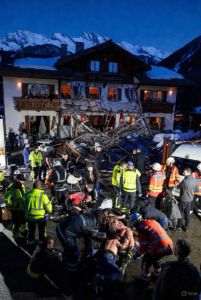Violence is a significant problem in Romanian schools. The Minister of Education, Ligia Deca, has stated that there must be zero tolerance for any form of violence in schools, emphasizing that it should be combated through collaboration between schools, families, authorities, and society as a whole. The minister stated: "I believe that in schools, we must have zero tolerance for any form of violence, whether it's physical, psychological, or emotional violence. This responsibility is not only for the school director or the school counselor; it is the responsibility of every person in the school, be it a teacher, auxiliary staff, administrative staff, or student. We all need to have the responsibility of preventing and addressing all acts of violence. I don't believe there should be any teacher who is indifferent when a student comes and reports that they have been assaulted. There are procedures in place in schools; we have a procedure to combat violence that outlines clear responsibilities for each person in the school. There is also a mechanism to alert other institutions in severe cases - whether we are talking about the Directorate General for Social Assistance and Child Protection (DGASPC), the School Safety Office, or the Police - so that when there are severe cases, all professionals who need to take action are involved." Ligia Deca emphasized the need for a change in mentality: "It's also about a change in mentality. It's clear that violence in schools must be fought through collaboration between schools, families, authorities, and society as a whole. For me, it was essential, first and foremost, to have a clear procedure for combating violence because, until now, people would say "we don't know what to do, we don't know who to talk to.' Now this circuit is clear. Furthermore, we focused on the theme of "School Different' for this year to prevent violence in schools, prevent bullying in all its forms, and provide training on what cyberbullying means because many children spend a lot of time on social networks, and even if the interactions are not face-to-face, the psychological effects can be just as harmful, especially for developing personalities." According to Ligia Deca, there is no bad child; there is a child who, at some point, had a behavioral problem: "Violence problems in schools have existed and will continue to exist. They are common in other European Union states, and we all operate in the constitutional context of the right to education. When children become violent, there are underlying causes that need to be addressed through appropriate measures, through professionals such as school counselors, social welfare departments, along with the family and the school. Certainly, through the new pre-university education law, we have introduced clearer and sometimes more drastic measures to address severe cases, ensuring appropriate sanctions to guarantee the right to education for both the students and their classmates. But I believe there is no bad child; there is a child who, at some point, had a behavioral problem, a problem that is up to us, the adults, to address as just a phase the child is going through. So, I believe in the responsibility of the family, professionals, the school, and, why not, society, to create an environment where that child can be rehabilitated. I believe there is this possibility, and the results of real and professionally-based interventions in schools where there have been such problems give me hope that we will find solutions whenever a child goes through a more challenging period or makes a mistake. I don't think any of us want to be characterized throughout our lives by a mistake we made at some point." The minister's statements were made during a working visit to Prahova county, where discussions were held with students and teachers.
Minister: Our country is doing well in youth employability
The Minister of Education has stated that, according to statistical data, Romania is doing better than "many other European countries" regarding the employment of young people: "The employability figures tell us that we are doing better than many other European countries in terms of youth employment. Also, those who complete higher education still find employment more easily than those who finish high school or only complete middle school." Deca explained that there is still work to be done in aligning the demands of employers with what happens in schools: "Regarding the alignment of what happens in schools with what employers require, here, yes, we still have work to do; we measure it. We have a project that is now completed for the interconnection of databases, the integrated information system at the Ministry of Education with the ANOFM database to see what happens to our graduates. In addition, we have redesigned the entire dual vocational education system to bring companies alongside us because they say they cannot find adequately trained personnel. Schools say that employers are not close enough to the school to make the connection. The connection is made through the new dual vocational education route and with European investments, as financing 29 such integrated campuses instead of 10 increases the chances of making vocational education entirely dual by 2029-2030, as the law foresees." Ligia Deca also appealed to families and local authorities to work together so that all children go through the mandatory school years: "I find it very important for all students to complete the mandatory years of education because this will prepare them for tomorrow's economy. It is clear that a value-added economy, which Romania is striving for, needs qualified personnel. Training is becoming increasingly complex, even for professions we knew had a lower level of training. Digital competencies are added, along with a whole range of new technologies. That's why we invest in schools, and it is very important. I appeal to both families and local authorities to work together so that all children go through the mandatory school years. This will guarantee them a future and us as a society. ... I believe that when state institutions collaborate, and here I refer to labor market agencies, inspectorates, and the Directorate General for Social Assistance, things can be prevented. If we have a child who hasn't progressed beyond the 9th grade, we identify them in the first year and provide the necessary counseling to guide them to the best form of education for them. I believe these children can and must be recovered."
















































